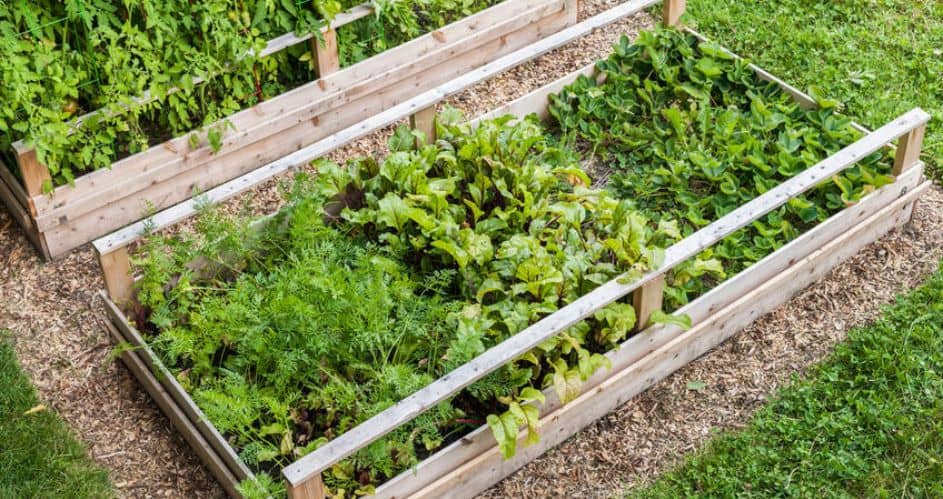
Are you looking to start a garden but don’t have much space or a suitable area for traditional gardening? Raised garden beds might be the best for you! These gardens have become increasingly popular due to their numerous benefits.
Not only do they provide a practical solution for limited space, but they also offer a range of other advantages that make gardening easier and more enjoyable. In this blog post, we’ll delve into the benefits of raised garden beds and why you should consider incorporating them into your gardening routine.
Five Advantages of Raised Garden Beds
Improved soil conditions and drainage
One of the standout benefits of raised garden beds is the ability to fully control the soil quality. Unlike traditional in-ground gardens at the mercy of the native soil, raised beds allow you to tailor the soil blend to your plants’ needs, enhancing growth and health.
Furthermore, these elevated gardens promote better drainage. Excess water can easily escape, preventing the root rot and diseases often associated with waterlogged soil. This combination of improved soil conditions and drainage is a game-changer for gardeners, offering a healthier environment for various plants.
Extended growing season
Raised garden beds can significantly extend your growing season. Because the soil in raised beds warms up faster in the spring than the ground soil, you can plant your crops earlier in the season.
Similarly, in the fall, the elevated soil retains warmth longer, allowing your garden to remain productive even as cooler temperatures set in. This extended season allows gardeners to enjoy a longer harvest period, potentially increasing the yield and variety of crops they can grow in their gardens.
Ease of access and reduced strain
Elevated garden beds significantly reduce the physical strain often associated with traditional gardening. By raising the soil level, gardeners can tend to their plants without needing constant bending or kneeling, making gardening activities more comfortable and accessible, especially for those with mobility issues or back pain.
This enhanced accessibility makes gardening more enjoyable and allows for longer, more productive gardening sessions, as the reduced strain minimizes the risk of injury or discomfort.
Enhanced pest and weed control
Raised garden beds naturally deter pests and simplify weed management. The elevation makes reaching your plants more challenging for pests like slugs and snails, while the contained space discourages invasive weeds from taking root.
Additionally, the clear separation between the garden bed and the surrounding area allows for easier identification and removal of unwanted plants.
By creating a barrier against common garden nuisances, raised beds protect your crops and reduce the need for chemical pesticides and herbicides, promoting a healthier and more sustainable garden ecosystem.
Efficient use of space and resources
Raised garden beds are particularly beneficial for those with limited gardening space. Gardeners can grow plants in a compact area by optimizing vertical space, making the most out of small patios, balconies, or backyards.
Additionally, raised beds promote more efficient water use. These gardens ensure water isn’t wasted by concentrating irrigation directly on the plant roots and minimizing runoff. This precise use of space and resources maximizes gardening potential in small areas and contributes to more sustainable gardening practices.
Whether you’re a seasoned gardener looking to optimize your practices or a beginner seeking a manageable entry point into gardening, raised beds offer a versatile and effective solution.
Embracing this method could transform your gardening experience, yielding healthier plants, more abundant harvests, and a more enjoyable gardening process overall.